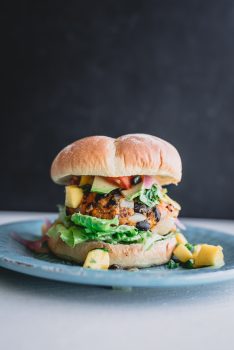 Hey you guys!!!! Yes – you – the men out there. It’s Movember. Would you like to know how to lower or eliminate your risk of prostate cancer? Or if you are diagnosed already, how to lower your PSA numbers and possibly prevent recurrences post-treatment? Growing a moustache for the month of November and donating to male-specific cancer research is worthy. I’m not asking you to stop that. A huge benefit of the Movember campaign, now in its 15th year, is that it may stimulate you to pay closer attention to your prostate and testicles – at least with a different perspective!
Hey you guys!!!! Yes – you – the men out there. It’s Movember. Would you like to know how to lower or eliminate your risk of prostate cancer? Or if you are diagnosed already, how to lower your PSA numbers and possibly prevent recurrences post-treatment? Growing a moustache for the month of November and donating to male-specific cancer research is worthy. I’m not asking you to stop that. A huge benefit of the Movember campaign, now in its 15th year, is that it may stimulate you to pay closer attention to your prostate and testicles – at least with a different perspective!
Understand that the U.S. has THE highest rate of prostate cancer in the world while Asian nations have the lowest occurrences. Also understand that when a man moves from Asia to the U.S. and adopts an American lifestyle, within one generation his rate of prostate cancer will match that of his U.S. countrymen. The countries in the world where rates of men’s cancers are going up are directly proportional to the increase in meat, eggs and dairy in the diet. The Indias and Chinas of the world are trying to catch up to the per capita animal consumption of the U.S. and are paying the price with health. The dietary link to cancer is astounding.
![]() What about genetics? Approximately 5% of most forms of cancer are linked to genes. According to Dr. Michael Greger, if you carry the gene for prostate cancer your risk of developing the disease will go up 3-fold. But whether you carry the gene or not, your risk of developing prostate cancer will go up 300-fold if you continue to maintain a Standard American Diet combined with other lifestyle factors. It has been scientifically shown that carrying a gene does not mean that the gene will ultimately be expressed. There has to be a series of catalysts to launch a gene into action – often lifestyle and environmental. Cancer cells can grow for a decade or more before a tumor is detectable through screening. Gene carrier or not, making changes today will help stave that off.
What about genetics? Approximately 5% of most forms of cancer are linked to genes. According to Dr. Michael Greger, if you carry the gene for prostate cancer your risk of developing the disease will go up 3-fold. But whether you carry the gene or not, your risk of developing prostate cancer will go up 300-fold if you continue to maintain a Standard American Diet combined with other lifestyle factors. It has been scientifically shown that carrying a gene does not mean that the gene will ultimately be expressed. There has to be a series of catalysts to launch a gene into action – often lifestyle and environmental. Cancer cells can grow for a decade or more before a tumor is detectable through screening. Gene carrier or not, making changes today will help stave that off.
If diagnosed with prostate or testicular cancer, there are a few medical options: surgery, radiation, chemotherapy and pharmaceuticals. These treatments all have effects including impacting your sexual performance and urination, and may not eliminate your future prostate cancer risk. Worse, you may face chemical or surgical castration. Even with this drastic measure, there are no guarantees of permanent remission.
 When looking at the standard medical protocol, developing new plant-centric eating habits should be a no brainer. No negative side effects. Strong possibility of preventing cancer or enhancing recovery. Really delicious. Yet meets with such resistance.
When looking at the standard medical protocol, developing new plant-centric eating habits should be a no brainer. No negative side effects. Strong possibility of preventing cancer or enhancing recovery. Really delicious. Yet meets with such resistance.
Surprisingly, several information sites on cancer give very general, if any, advice on diet. Everything in moderation. Cancer is not moderate – and very personal if you have cancer in your sex organ or sex hormone production center (testes). So what, specifically, can you do about diet? Published, peer-reviewed scientific research outlines the facts:
BECOME A PLANT LOVER:
Tomatoes (lycopene shows promise for prostate health)
Cruciferous vegetables
Unfermented soy products – positive link to avoiding cancer (eg: organic tofu, edamame, soy milk)
Fiber (only in plant foods)
All fruits, vegetables, whole grains, legumes, nuts and seeds
Flavanoids: the antioxidants from plants which assist your cells in eradication of free radicals, which may be one factor in switching on cancer cells
AVOID:
Eggs
Dairy
Poultry
Beef
Meat – all types, processed and otherwise
Fish
Excessive salt and sugar other than in whole fruit
Saturated fats (all animal products): increases production of testosterone which is a catalyst for prostate cancer
 Several studies have been performed with men at a range of prostate cancer stages. What researchers, such as Dr. Dean Ornish, found is that regardless of what stage a man is at, 100% dietary compliance of a whole food plant based (WFPB) diet determined improvements and even reversal. Moderation did not produce the same results. You can’t be 90% ‘good’ when you are dealing with disease. Dr. Ornish (and others) also found that PSA numbers climb back up and cancer risk returns when men stopped adhering to the WFPB lifestyle.
Several studies have been performed with men at a range of prostate cancer stages. What researchers, such as Dr. Dean Ornish, found is that regardless of what stage a man is at, 100% dietary compliance of a whole food plant based (WFPB) diet determined improvements and even reversal. Moderation did not produce the same results. You can’t be 90% ‘good’ when you are dealing with disease. Dr. Ornish (and others) also found that PSA numbers climb back up and cancer risk returns when men stopped adhering to the WFPB lifestyle.
Eating plants is a fantastic prescription for life. Surgery, chemo, radiation and drugs have their place, but why not do better? Wear your mustache loud and proud. Do some research on your own. Then go to yoga or a workout and man up to a great plant-based meal and craft brew with a friend. Happy Movember.
 Colleen Gray-Hewett, B.A.’93, UBC, is a longtime dweller of North Vancouver, BC, whose passion for excelling at an active, healthy life well into her 40s led her not only to adopt, but intensively study the benefits of a plant-based diet and vegan life. This lead to apprenticeships with key mentors such as Victoria Moran of Main Street Vegan Academy in NYC in 2016 and currently with Nicolette Richer of Richer Health (2017/18). Colleen always brings current strategies, an open mind and ideas to her practice – be it with one-on-one coaching, writing or to speaking engagements. She strongly believes that we can prevent and heal our bodies with food, recognize all animals as beings of this planet, and work towards healing the planet. Here are her self-defined bullet points:
Colleen Gray-Hewett, B.A.’93, UBC, is a longtime dweller of North Vancouver, BC, whose passion for excelling at an active, healthy life well into her 40s led her not only to adopt, but intensively study the benefits of a plant-based diet and vegan life. This lead to apprenticeships with key mentors such as Victoria Moran of Main Street Vegan Academy in NYC in 2016 and currently with Nicolette Richer of Richer Health (2017/18). Colleen always brings current strategies, an open mind and ideas to her practice – be it with one-on-one coaching, writing or to speaking engagements. She strongly believes that we can prevent and heal our bodies with food, recognize all animals as beings of this planet, and work towards healing the planet. Here are her self-defined bullet points:
• Plant-Strong Health Educator & Coach
• Founder of www.communityvegan.com and www.facebook.com/communityvegan
• Plant-based foodie
• Currently completely her Holistic Nutrition Certification
• ‘Retired’ Investment Advisor and Certified Financial Planner
• Triathlete (2x Long Distance World Champion 2013 & 2014 and 2x Ironman Kona qualifier)
• Competitive cyclist (and coach); hiker; trail runner; swimmer; SUP’r
• Yogi (250 hrs RYT Vinyasa & Yin)
• Parent of two teens, one dog, two cats; spouse of one
• Traveler with many places still to explore on foot or two wheels
• Coffee aficionado
• Devotee of the sun, rain, earth and animals

